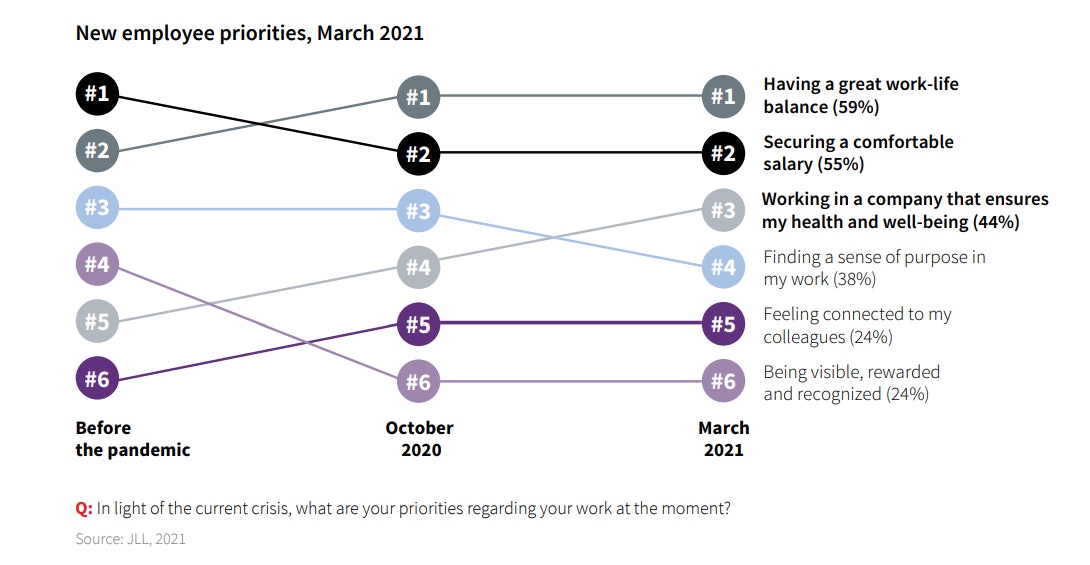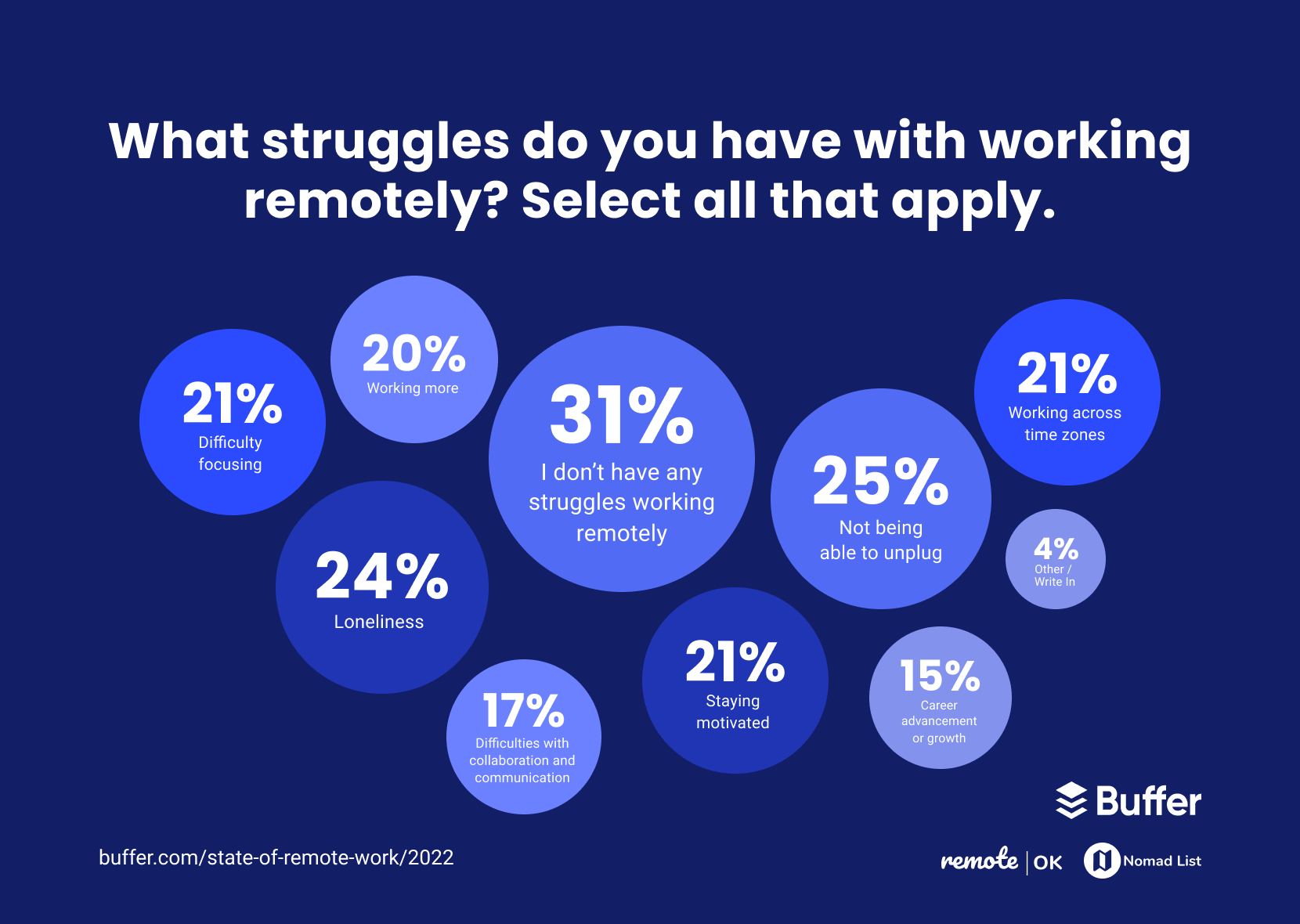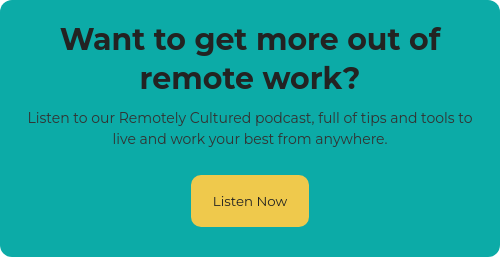Here at FPS, we think living the #WFA life is, in essence, living the dream. After all, who doesn't want the financial, time, and location freedom that being a remote worker or digital nomad offers?
But, like all coins, even the shiniest one has a flipside. And for all the flexibility and autonomy that working from anywhere provides, it also comes with increased susceptibility to professional burnout. In fact, while pre-2020 research indicated that remote workers were less likely to succumb to burnout, the post-pandemic tides have shifted dramatically.
Remote workers, as noted here, certainly aren't alone in reporting feelings of burnout, but it is surprising that they are now more likely than their in-office counterparts to experience the symptoms.
There are many factors contributing to remote work burnout, including the pandemic and future uncertainty for many workers around returning to the office. While it doesn't change our stance on #WFA (we still believe it's the bee's knees), it does raise serious concerns that impact the mental well-being of remote workers and the success of their teams — and those concerns must be addressed.
To that end, we're compiling our best tips on how to avoid burnout, protect your mental health and find the joy you might have been missing in your #WFA life.
9 Tips for Recognizing and Preventing Remote Work Burnout
Whether you're a digital nomad who's been around the block (or the globe) a time or two, or you're a former office worker thrust into the remote work life due to the pandemic, you're equally at risk of feeling the effect of professional burnout. Here's what to do to take care of your health and your career:
#1: Recognize the Signs
Feeling like you can't keep your head above water? That drowning sensation is an early symptom of burnout. If you're experiencing that, along with increased exhaustion, feelings of hopelessness, and a lack of interest in anything outside of work, you're on a collision course with clinical burnout.

Understanding the signs of impending burnout is the first step to prevention. Once you've identified the symptoms you're experiencing, you'll be ready to tackle them head-on by seeking support — whether from your employer, your peer network, or a qualified mental health expert.
#2: Set Clear Boundaries
One of the biggest challenges of working from anywhere is the feeling of being "always on." Studies show that remote employees work longer hours, often checking in during their typical off hours or logging time over the weekend. Fully remote companies with employees in multiple time zones have this challenge as well, as team members are working around the clock, depending on their location.
The solution to this "always on" dilemma is to set very clear boundaries to protect your time. Make sure your working hours are displayed prominently, whether it's on your project management platform, messaging and communication apps, or your email signature. And then — the really tricky part — stick to it. Shut off notifications during your downtime, and keep your status updated so colleagues know when you're out of office, taking PTO, sick, or on vacation.
#3: Seek Out Resources
If you work for a distributed company, it's very likely your employer has support services available to you. In fact, in the last couple years, as awareness of burnout and mental health increases, so too do the demands remote workers have for their employers.
More than a better salary, prospective employees are looking for a better work/life balance. And more than in previous years, remote workers want to find a company that prioritizes their health.

But what about digital nomads, freelancers, and contractors without access to employer benefits and support? It's a challenge, but there is help available. As telehealth becomes widely available, it's now easier than ever to access counseling on your smartphone from anywhere in the world. Plus, apps like Calm and Moodkit can help you create your own healthy practices, like meditation and better sleep.
#4: Combat Loneliness
Remote workers are the loneliest, and the last couple years of lockdowns, quarantines, and isolation certainly didn't help. Now that some of the pandemic fog has lifted, getting back out into the world is a thrilling — but often terrifying — prospect. For digital nomads, they might be traveling again for the first time in years. And for the work-from-home crowd, it might be getting back into normal social routines.
Whatever your situation, you can counteract burnout by making dedicated time to be around other humans. Meet up with other digital nomads in your current country (join a Facebook group or an online community like NomadList), or schedule a weekly lunch or after-work cocktail with friends.
If you aren't up for lots of interacting yet, ease into it. Take your office on the road and hit up a busy spot that isn't a coffee shop, or book a day from a local coworking facility.
#5: Overcommunicate
When the world shifted to remote work, the top challenge listed by remote workers was communication. There's a silver lining here because while it's still an ongoing struggle, it's much further down the list now.

That could be attributed to the rise in asynchronous communication. Now, communicating asynchronously allows remote employees greater flexibility to work on their own schedules. But it takes effort and practice to get past the idiosyncrasies of async communication. You'll have to work at overcommunicating to ensure your message is received loud and clear.
That might involve scheduling messages (so they're delivered to the recipient the next time they're online), creating audio or video messages, and maintaining your work status (along with respecting your colleagues' status).
#6: Create Rituals and Routines
It's easy to roll out of bed sometime around mid-morning and stumble onto a Zoom meeting in your pajama pants. Easy, but also, in time, disheartening. Giving up on your old routines can make you more susceptible to burnout. And while we all have days we need to work from the comfort of our bed, it shouldn't be the norm. There's nothing that says you have to stick to your old 8-to-5 workday, but you should try to find a standard schedule that works for you.
While you're at it, be sure to add in a few rituals — those non-work-related activities you do every day or week. That might be a morning coffee ritual or a lunchtime workout ritual. Plan activities you look forward to doing, and make them a priority.
#7: Make Self-Care Healthcare
Everyone talks about self-care these days. But often, it's in the context of doing something special or out of the ordinary for yourself. And sure, a day at the spa is self-care — but so is a mid-day nap when you're feeling exhausted and overwhelmed. So is a long shower when you don't feel like getting out of bed. And so is eating a home-cooked meal when you've been existing on fast food.
Bottom line: Listen to your body and your brain. They will often tell you what you need, and most of the time, it's something you can do with relatively little effort. Stop waiting for a day off or a day out or payday or whatever other barrier there is to your self-care, and start with something small.
#8: Go Easy on Yourself
Feel like there's no time for self-care? Or even basic daily activities? If taking a shower, going for a walk, or making yourself lunch feels like it's just too much, it's okay. If you're already experiencing some of the effects of burnout, be gentle with yourself. Trying to "fake it 'til you make it" or "put on a happy face" will only compound the issues you're facing.
Burnout is reversible, but there are consequences that may be irrevocable — like damaging relationships with loved ones or coworkers or ultimately losing your job. So take a breath because you're going to need to take the hardest step of all:
#9: Ask for Help
No one likes asking for help because it means admitting you can't take care of something on your own. And yet, most of the time, when you reach out, you'll find that there are others willing to help out.
Be honest — first with yourself and then with others in your network. Let your manager or supervisor know that you're struggling, and ask for help in distributing work that's currently overwhelming. Keep a log of what you're doing, so you can show any imbalances between the time you're putting in and what's expected. Document everything, and if you're worried about approaching management on your own, seek help from HR or people ops.
For digital nomads and freelancers, it might mean some awkward conversations with clients. But better to have those uncomfortable conversations than miss deadlines or fail to meet expectations.






